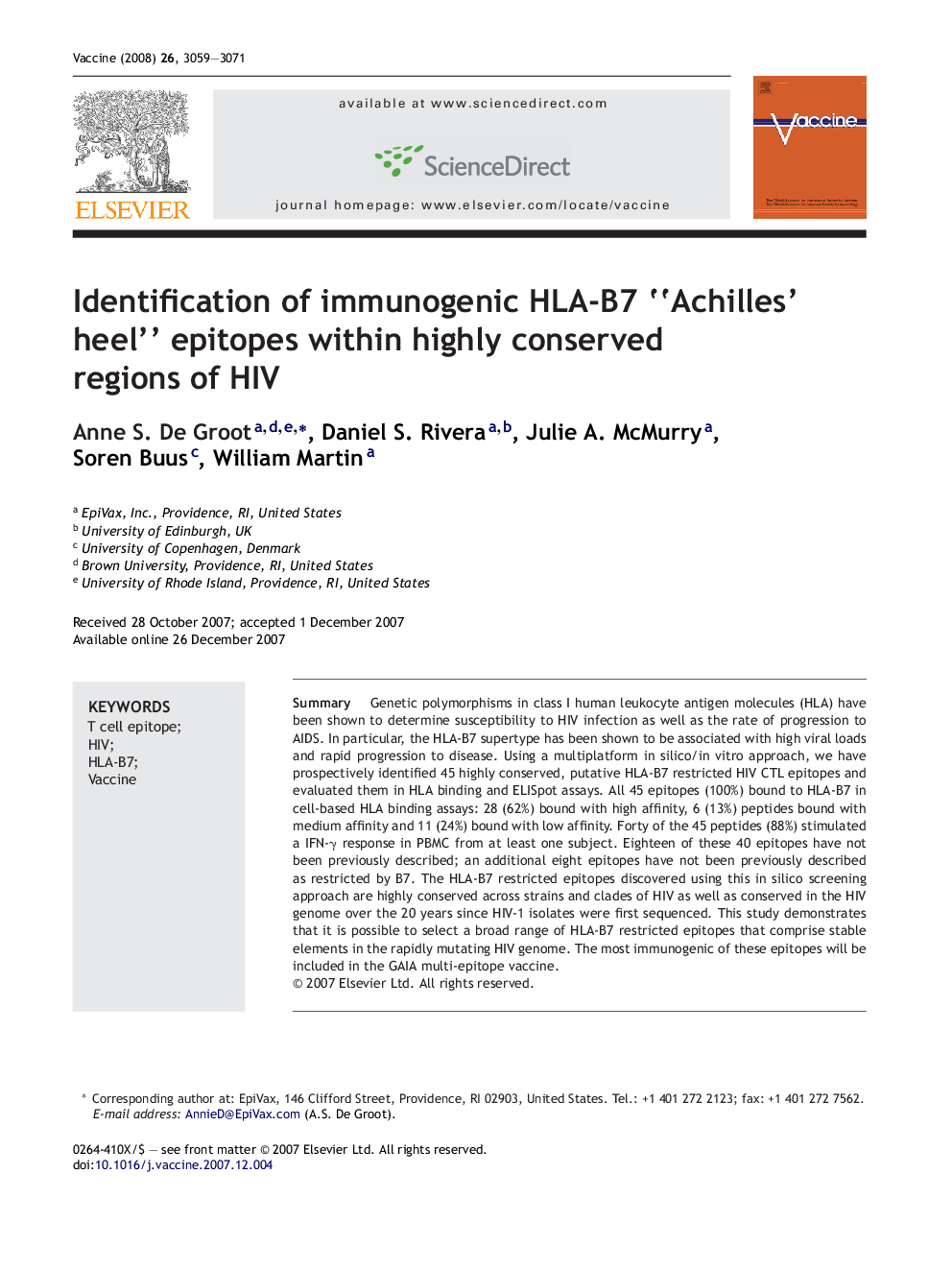| کد مقاله | کد نشریه | سال انتشار | مقاله انگلیسی | نسخه تمام متن |
|---|---|---|---|---|
| 2407912 | 1103147 | 2008 | 13 صفحه PDF | دانلود رایگان |

SummaryGenetic polymorphisms in class I human leukocyte antigen molecules (HLA) have been shown to determine susceptibility to HIV infection as well as the rate of progression to AIDS. In particular, the HLA-B7 supertype has been shown to be associated with high viral loads and rapid progression to disease. Using a multiplatform in silico/in vitro approach, we have prospectively identified 45 highly conserved, putative HLA-B7 restricted HIV CTL epitopes and evaluated them in HLA binding and ELISpot assays. All 45 epitopes (100%) bound to HLA-B7 in cell-based HLA binding assays: 28 (62%) bound with high affinity, 6 (13%) peptides bound with medium affinity and 11 (24%) bound with low affinity. Forty of the 45 peptides (88%) stimulated a IFN-γ response in PBMC from at least one subject. Eighteen of these 40 epitopes have not been previously described; an additional eight epitopes have not been previously described as restricted by B7. The HLA-B7 restricted epitopes discovered using this in silico screening approach are highly conserved across strains and clades of HIV as well as conserved in the HIV genome over the 20 years since HIV-1 isolates were first sequenced. This study demonstrates that it is possible to select a broad range of HLA-B7 restricted epitopes that comprise stable elements in the rapidly mutating HIV genome. The most immunogenic of these epitopes will be included in the GAIA multi-epitope vaccine.
Journal: Vaccine - Volume 26, Issue 24, 6 June 2008, Pages 3059–3071